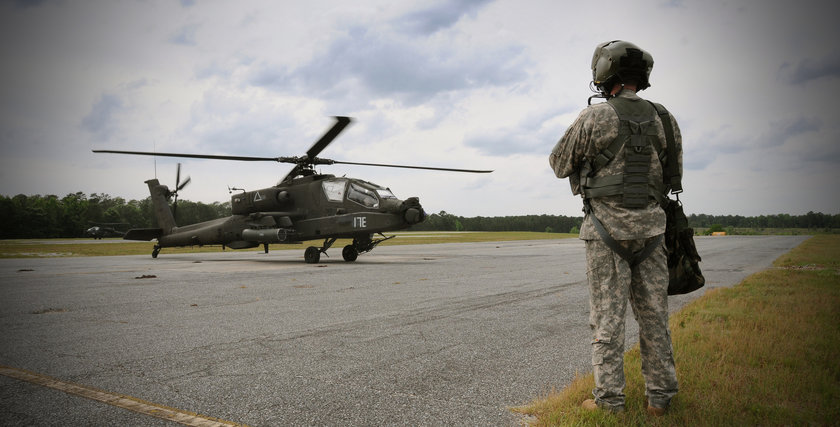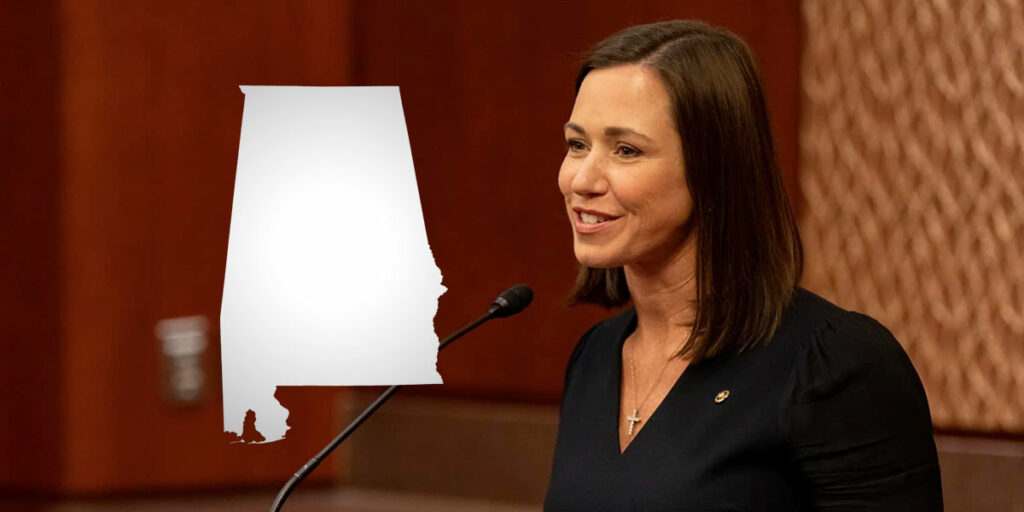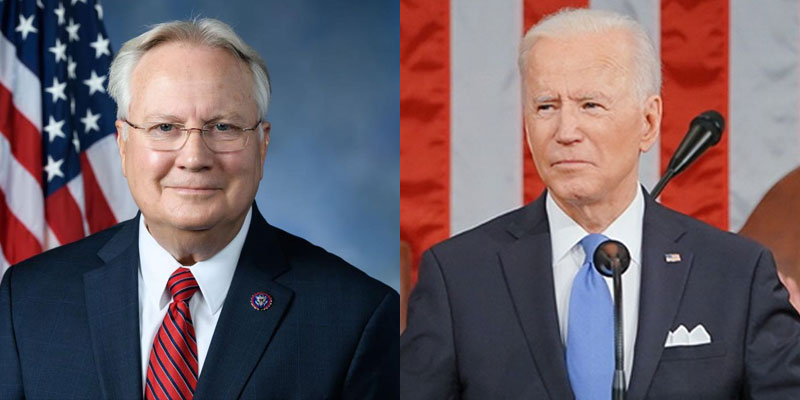
WASHINGTON — The U.S. Senate passed a National Defense Authorization Act (NDAA) Thursday afternoon authorizing $612 billion in defense spending for the upcoming fiscal year. Senator Jeff Sessions (R-AL), a senior member of the Armed Services Committee, praised the passage, but warned against a Democratic plan to block defense funding unless non-defense spending is also increased.
The NDAA sets the budget, determines the agencies responsible for carrying out defense operations, and sets spending policies, but actual appropriations will be codified by separate legislation.
Though the NDAA passed the Senate by a veto-proof 71-25 Thursday, Democrats are threatening to block defense spending legislation, and the President has promised a veto on both.
“What our Democratic colleagues are insisting upon, driven by the President and political interests, is that defense gets no increase in funding unless nondefense gets an increase in funding over the budget cap established by the Budget Control Act,” said Sessions in a speech on the Senate floor last week.
“How silly is that? Imagine, you have a tight budget at home, and a tree falls on your house. Emergency–you have to go out and find money, borrow money to fix the roof. Does that mean now that you are going to spend twice as much on your vacation? Are you going to go out and buy a new car that you did not plan to buy because you had to spend more money to fix the house?”
For Alabama’s other Senator, Richard Shelby (R), the president’s veto threat is evidence that national security isn’t a priority for the White House.
“The Obama Administration’s threat to veto the National Defense Authorization Act highlights the fact that national security is not a priority for this President,” Shelby told Yellowhammer Thursday afternoon. “I believe that our troops deserve better than a President who is willing to play politics with a critical bill that strengthens our military’s readiness and supports those who selflessly serve our great nation.”
Senator Shelby helped shepherd the defense spending bill out of the Appropriations Committee last week. It is this bill that is expected to face opposition from Democrats when it is considered by the full Senate in the near future.
As a senior member of the Armed Services Committee and Chairman of the Strategic Forces Subcommittee, Senator Sessions was instrumental in crafting the FY2016 NDAA.
“This legislation will help ensure that the United States maintains the finest military force the world has ever known,” Sessions stated in a press release following the NDAA vote Thursday afternoon.
“Alabama’s men and women in uniform, and the defense communities across the state of which they are a part, make immeasurable contributions every day to America’s national security. Congress has a weighty obligation to ensure that the men and women we send into harm’s way are adequately equipped and supported.”
Here are some of the ways the NDAA will support defense jobs in Alabama:
(Editor’s note: These descriptions were provided by Senator Sessions’ office and may not necessarily be the analysis of Yellowhammer News)
ANNISTON
· Anniston Army Depot is designated to receive over $65 million for additional workload from the Army’s unfunded requirements list. The work includes towed and self-propelled artillery, recovery vehicles, Strykers, and M-113 APCs.· The bill authorizes $195.6 million in procurement for M88A2 Hercules armored recovery vehicles. The bill includes $72.0 million in funding above the budget request to support the procurement of 16 additional vehicles and improved support to armored brigade combat teams.
· The legislation authorizes $145.8 million in Research, Development, Test, and Evaluation (RDT&E) for combat vehicle improvement programs, including $40.0 million in funding above the budget request for rapid development and testing of Stryker lethality upgrades.
· The Senate continues to work with the Assistant Secretary of the Army for Acquisition, Logistics, and Technology on the completion of the Transmission Industrial Base report on M1A2 Tanks requested in the FY15 NDAA which has been delayed until June 2015.
HUNTSVILLE
· The bill authorizes full funding for missile defense at the requested level of $8.8 billion. $8.127 billion is authorizes for the Missile Defense Agency. $1.304 billion is authorizes for Army Missile Defense programs.· The bill directs the Secretary of Defense to designate a DOD entity responsible for acquisition of critical cyber capabilities, establishes a $75 million cyber operations procurement fund for the Commander of United States Cyber Command (CYBERCOM) to exercise limited acquisition authority, and includes $200 million to begin cyber vulnerability assessments of every major DOD weapon system.
· The bill authorizes $50.3 million in RDT&E for directed energy research, including a $20.0 million increase to develop a prototype fiber combining laser suitable for flight testing on an unmanned aerial vehicle as soon as possible.
· The bill authorizes $23.0 million in RDT&E for interceptor technology, including an increase of $10.0 million for development of the Divert Attitude Control Technology in support of the Multiple-Object Kill Vehicle program.
· The bill authorizes $66.8 million in RDT&E for Common Kill Vehicle technology, including an increase of $20.0 million for development of the Multiple-Object Kill Vehicle program.
· The bill authorizes $286.7 million in RDT&E for improved homeland defense interceptors, including a $20.0 million increase for development of the Redesigned Kill Vehicle.
· The legislation authorizes $88.8 million in RDT&E for development of prompt global strike capability, including an increase of $10.0 million for conventional prompt global strike development and flight testing.
· The legislation increases the survivability of the AH-64 Apache attack helicopter against new threats by authorizing $104.3 million in procurement for the Common Missile Warning System, $101.6 million in procurement for common infrared countermeasures, and $78.1 million in procurement for aircraft survivability development.
· The bill funds the Army’s Improved Turbine Engine Program (ITEP) at the budget request level of $51.2 million. This will continue to support the development of a next generation turboshaft engine for the Blackhawk and Apache combat helicopters.
· The bill authorizes $614.9 million in procurement for PAC-3 Missile Segment Enhancement (MSE) missiles for use in the Medium Extended Air Defense System and Patriot missile defense systems. The bill increases funding for PAC-3 missiles by $200.0 million over the budget request.
· The bill authorizes $20.0 million in RDT&E for the Operationally Responsive Space program, including an increase of $13.5 million to match the previous year funding level.
· The Strategic Forces Subcommittee, which Senator Sessions chairs, voted unanimously to include a DOD legislative proposal offered by Senator Sessions during the Subcommittee mark-up that would allow United Launch Alliance to bid on up to 14 future national security space launches utilizing the Russian RD-180 rocket engine. That provision was modified by a vote during the full Senate Armed Services Committee mark-up to reduce the number to nine future launches for which ULA could use the RD-180 rocket engine.
· The Senate continues to push the Air Force and industry to develop a domestic replacement for the Russian RD-180 rocket engine.
MOBILE
· The Secretary of the Navy and the Chief of Naval Operations have been steadfast in their support for the Navy’s strategic need for the Littoral Combat Ship. The Senate agrees and authorizes funding for 3 LCS at the budget request of $1.36 billion.· The defense bill funds the UH-72 Light Utility Helicopter (Lakota), manufactured by an Airbus sister plant in Mississippi, at the budget request of $187.2 million, which funds the procurement of 28 helicopters.
· The legislation authorizes $4.5 million for the vehicle maintenance shop at the Foley National Guard Armory.
MONTGOMERY
· The bill also authorizes $75 million for C-130 aircraft avionics modernization program (AMP) installation and $33.2 million for C-130 engine upgrades. These funds will help ensure that older model C-130 aircraft will continue to be utilized.· The Senate directs the Secretary of Defense to designate a DOD entity responsible for acquisition of critical cyber capabilities, establishes a $75 million cyber operations procurement fund for the Commander of United States Cyber Command (CYBERCOM) to exercise limited acquisition authority, and includes $200 million to begin cyber vulnerability assessments of every major DOD weapon system.
· The bill also enhances funding for the Defense Information Systems Agency (DISA) by $20 million.
· The legislation authorizes $33 million for elementary and middle school renovations at Maxwell Air Force Base and $7.6 million to replace the squadron operations facility at Dannelly Field.
WIREGRASS / FT. RUCKER
· The defense bill funds the UH-72 Light Utility Helicopter (Lakota) at the budget request of $187.2 million, which funds the procurement of 28 helicopters.· The bill funds UH-60 Blackhawk helicopters at the budget request level of $1.44 billion, which funds the procurement of 94 helicopters.
· The legislation funds the Army’s Improved Turbine Engine Program (ITEP) at the budget request level of $51.2 million. This will continue to support the development of a next generation turboshaft engine for the Blackhawk and Apache combat helicopters.
· The Senate increases the survivability of the AH-64 Apache attack helicopter against new threats by authorizing $104.3 million in procurement for the Common Missile Warning System, $101.6 million in procurement for common infrared countermeasures, and $78.1 million in procurement for aircraft survivability development.
· The bill authorizes $47 million for elementary school improvements at Fort Rucker.
Like this article? Hate it? Follow me and let me know how you feel on Twitter!
— Elizabeth BeShears (@LizEBeesh) January 21, 2015












